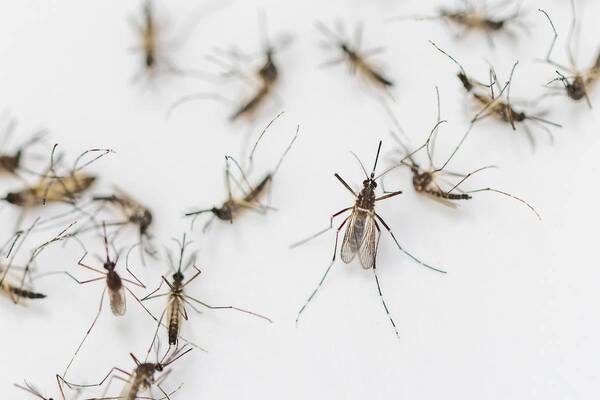Mosquitoes are among the most persistent and widespread insects on Earth, playing a crucial yet controversial role in ecosystems. With over 3,500 species, they thrive in various climates and are infamous for spreading deadly diseases such as malaria, dengue, Zika virus, and West Nile virus (WHO, 2023).
But with advancing genetic technology, climate change, and global mosquito control efforts, some wonder: Will mosquitoes ever disappear? In this article, we explore mosquito extinction possibilities, seasonal variations, scientific interventions, and the impact of climate change on their survival.

The lifespan of a mosquito depends on species, environment, and climate conditions:
Egg Stage: 1-3 days (laid in stagnant water)
Larva & Pupa Stages: 4-14 days (aquatic development)
Adult Stage:
Males: 5-7 days (die shortly after mating)
Females: 2-8 weeks (longer in warm, humid environments)
Mosquito populations fluctuate based on temperature, humidity, and breeding conditions. They thrive in warm temperatures (above 50°F/10°C) and tend to disappear in cold winters due to dormancy or death.
| Region | Mosquito Season | When They Disappear |
|---|---|---|
| Tropical Areas (Africa, SE Asia, South America) | Year-round | Rarely disappear |
| Temperate Regions (USA, Europe, China) | Spring to late fall | Winter dormancy |
| Arctic/Subarctic (Alaska, Canada, Russia) | Short summer (June-August) | Cold months (September-May) |
Hibernation (Diapause): Some mosquito species, like Culex pipiens, survive winter by entering diapause (a state of suspended development).
Egg Survival: Certain eggs can endure extreme cold and hatch when conditions become favorable.
Climate change alters mosquito habitats, but instead of causing extinction, it often expands their range:
Warmer temperatures enable mosquitoes to thrive in previously uninhabitable areas (e.g., Europe, North America).
Increased rainfall provides more breeding sites.
Urbanization creates artificial water sources, supporting mosquito survival.
Example: A study by IPCC (Intergovernmental Panel on Climate Change) found that mosquito-borne diseases like malaria and dengue are spreading to higher altitudes due to global warming (IPCC, 2023).
Mosquitoes are an essential part of the food chain, serving as food for:
Fish (e.g., mosquito fish, guppies)
Dragonflies and damselflies
Bats and birds
Frogs and amphibians
However, these predators only help control populations, not eliminate them entirely.
Although mosquitoes are disease carriers, they also play ecological roles:
Pollinators: Certain species help pollinate plants.
Food source: Their larvae support aquatic ecosystems.
Nutrient recyclers: They contribute to the decomposition cycle in wetlands.
While humans could benefit from eradicating disease-carrying species (Anopheles, Aedes), wiping out all mosquitoes could disrupt delicate ecosystems.
Scientists are using genetic modification (CRISPR) and sterilization techniques to control mosquito populations:
Oxitec’s Gene-Edited Mosquitoes: Releases sterile male mosquitoes to prevent reproduction.
CRISPR-Based Modifications: Alters mosquito DNA to make them incapable of spreading diseases.
Wolbachia Bacteria Strategy: Infects mosquitoes to reduce their ability to carry viruses (Dengue, Zika).
Several countries have implemented vector control strategies:
China’s "Mosquito-Free Islands": Using genetically modified mosquitoes and traps.
Brazil’s Dengue Control: Releasing genetically altered mosquitoes to reduce populations.
U.S. Mosquito Control Districts: Targeted pesticide spraying and habitat destruction.
Yes! Over time, mosquitoes evolve resistance to insecticides, making eradication more challenging. Recent studies indicate that some mosquito populations are becoming resistant to CRISPR-based genetic modifications, raising concerns about long-term success (Nature, 2022).
Mosquitoes thrive within a temperature range of 10°C (50°F) to 35°C (95°F), but extreme temperatures can be fatal.
Below 10°C (50°F): Mosquito activity significantly decreases, and many species enter dormancy or die.
Below 0°C (32°F): Most adult mosquitoes cannot survive, though some species’ eggs or larvae can endure freezing conditions.
Above 35°C (95°F): Excessive heat, especially in dry conditions, can cause mosquitoes to dehydrate and die.
The drastic decline in mosquito populations during winter is due to several factors:
✅ Cold Temperatures Kill Adult Mosquitoes – Most mosquitoes die when temperatures drop below 10°C (50°F), especially in temperate and cold climates.
✅ Diapause (Dormancy) – Some mosquito species, like Culex pipiens (common house mosquito), enter diapause, a hibernation-like state, waiting for warmer temperatures to become active again.
✅ Slowed or Halted Larval Development – Mosquito larvae need warm water to grow. When water temperatures drop too low, their development slows down or stops completely.
✅ Reduced Water Sources – In winter, many breeding sites dry up or freeze, making it difficult for mosquitoes to reproduce.
✅ Predators Remain Active – Natural predators, such as fish, birds, and other insects, continue to hunt mosquitoes, further reducing their numbers.
While most mosquitoes die off, some species have adapted to survive cold conditions:
Cold-Resistant Mosquito Eggs: Aedes mosquitoes (which transmit dengue fever) lay eggs that can withstand freezing temperatures and hatch when conditions improve.
Overwintering Mosquito Larvae: Some larvae survive in warm underground water sources, such as hot springs or sewers.
Hibernating Female Mosquitoes: Certain species, like Culex pipiens, find sheltered places like caves, tree holes, basements, and underground tunnels to hibernate until spring.
Mosquitoes resume activity when temperatures rise above 10°C (50°F). With warmer and wetter conditions in spring, mosquito eggs hatch, and their populations rapidly increase.
Conclusion: Mosquitoes become inactive at temperatures below 10°C (50°F) and die at 0°C (32°F). Winter’s low temperatures, scarcity of water sources, and presence of predators drastically reduce their numbers, but some eggs and larvae survive, allowing mosquitoes to return when conditions improve.
Short Answer: No, mosquitoes will not completely disappear in the foreseeable future.
Some species may be eradicated, but others will adapt and persist.
Climate change may expand mosquito habitats instead of reducing them.
Genetic control strategies are promising but not foolproof.
✅ Localized elimination of disease-carrying species (Anopheles, Aedes).
✅ Breakthroughs in gene-editing could reduce global mosquito numbers.
❌ Complete extinction is unlikely due to ecological importance and adaptability.
While mosquitoes remain one of the deadliest creatures to humans, efforts to control them must balance public health and ecological stability.
What are your thoughts on mosquito eradication? Would you support a world without mosquitoes? Let us know in the comments!
animal tags: Culicidae
We created this article in conjunction with AI technology, then made sure it was fact-checked and edited by a Animals Top editor.